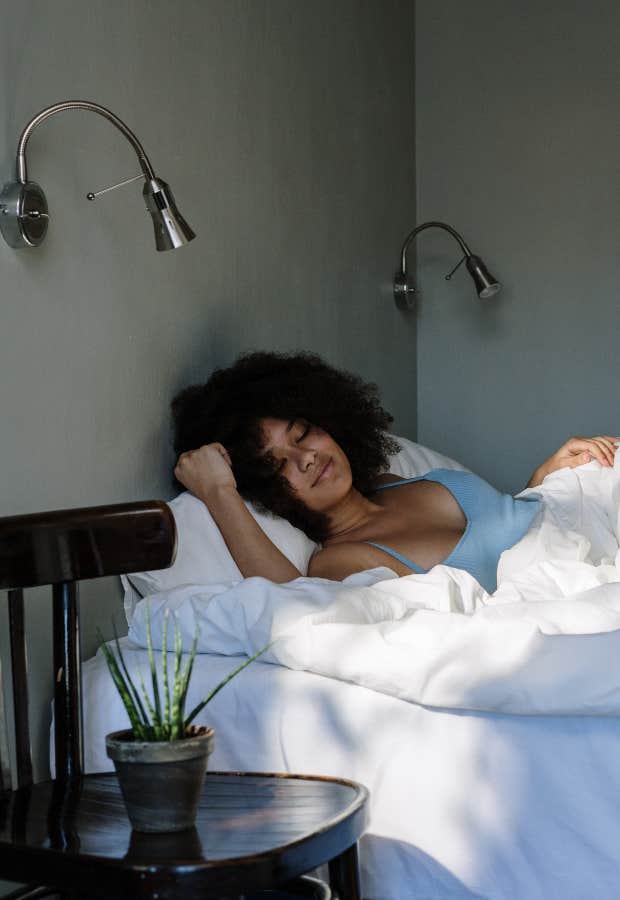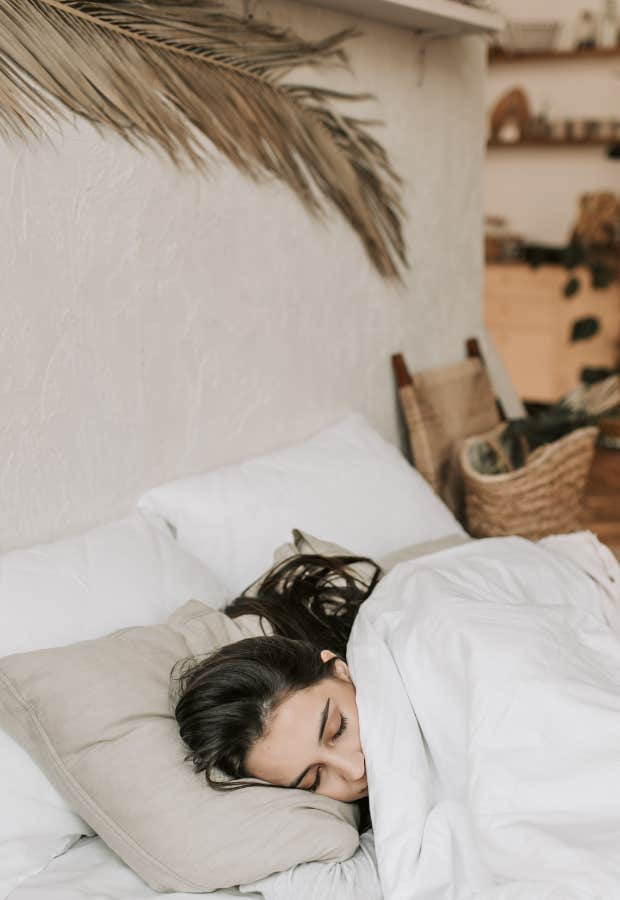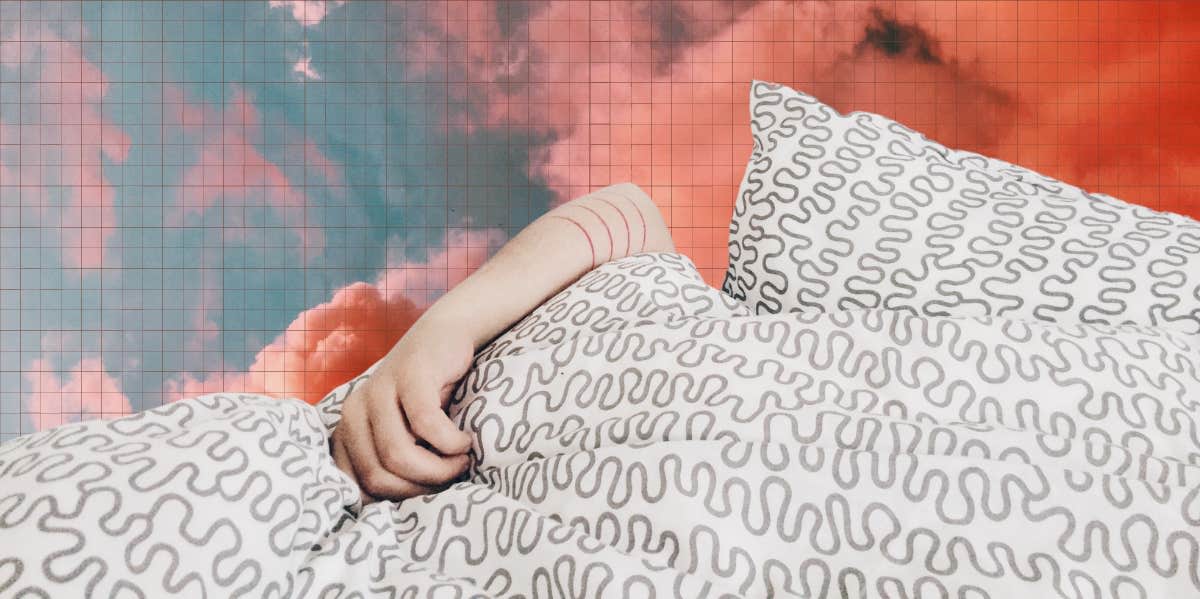Sleep Scientist Defends 'Bed Rotting' For Self-Care— 'Just Let The People Rot'
Vanessa Hill is an Australian sleep scientist who uses her TikTok platform as a way to analyze sleep trends and share tips for better sleep. In her TikTok bio, she describes herself as a “sleep and habits PhD researcher.”
In one recent video, Hill advocated for the benefits of staying in bed.
The sleep scientist defended the ‘bed rotting’ trend as a valuable self-care technique.
“There’s a new trend called ‘bed rotting’ and it’s actually perfect,” she explained.
“Bed rotting is when you do literally nothing but laying in bed,” Hill explained. “It’s the end of optimization. It’s anti-productivity because you are wasting away under a blanket and the nothingness is your best life.”
Hill shared her scientific perspective that bed rotting is actually beneficial to people’s health.
RELATED: Let Her Sleep In! Why Women Need More Sleep Than Men
“I’m a sleep scientist who fact-checks a lot of trends,” she stated. “I’m here to tell you that bed rotting is 100% backed by science. Just sink into your sheets and stay there.”
She continued, “Some outlets are challenging this beautiful trend, asking, ‘Is it really self-care or could it mess with your sleep?’ And to them, I say, ‘Just let the people rot.’ You’re allowed to live. Live under a blanket, rest, and be soft,” she exclaimed.

Photo : cottonbro studio / Pexels
“I’m not accepting questions at this time,” Hill ended her post.
RELATED: What It Means If You Keep Waking Up At 3 A.M.
While some comments celebrated the experience of relaxing through bed rotting, others noted it could be harmful, especially for people who experience depression.
Hill did her due diligence as a scientist and made another TikTok response to those comments. In the follow-up video, Hill addressed issues that could accompany bed rotting. She created a post titled, “How To Know If ‘Bed Rotting’ Isn’t For You,” explaining in the caption, “I’m still on team rot and rest, but it would be remiss of me not to respond to your comments about depression.”
Hill invited Dr. Ali, a psychologist, to speak, as someone she described as “An expert in the nuances of mental health.” She ended the caption by exclaiming, “Rest looks different for everyone, so always do what’s best for you.”
She shared her reasons behind advocating for bed rotting, saying, “In a world of hustle culture and optimization, trends like bed rotting are about allowing yourself to do less and knowing that that’s okay.”
RELATED: What It Means About Your Mental And Physical Health If You Wake Up At The Same Time Every Night
She acknowledged that staying in bed might signify that something deeper than just exhaustion is going on, saying, “Spending all day in bed can also be a symptom of depression, so I asked Dr. Ali, a clinical psychologist, what we should watch out for.”
The camera cut to Dr. Ali, who stated, “This can be a very helpful thing for some, and for others, it could be a symptom of depression, or it could trigger a depressive episode, both of those things are true. Mental health is complicated, it’s a little bit different for everyone.”

Photo: Vlada Karpovich / Pexels
RELATED: The Ideal Bedtime For Each Zodiac Sign
“I think the watch-outs here are if you're vulnerable for depression, or if you have some of the other signs of depression — lower energy, problems with sleep, changes in appetite, and the big one, you’re no longer really enjoying things the way you used to, then this probably is not a good thing for you to do,” Ali explained.
“On the other hand, if you’re someone who maybe isn’t really resting, you’re not taking care of yourself, you really feel like you’re hustling too much, taking time to rest is always a good thing to do,” he ended his statement.
The existence of bed rotting as a trending activity shows that despite living in a fast-paced world, rest remains an absolute necessity.
There’s no need to feel guilty about practicing methods of self-care, however, that care takes form. If we need to spend time snuggled deep under the covers, we should allow ourselves that brief amount of respite to recharge.
RELATED: Man Helps People Meditate Without Meditating — 'You Cracked The Code For Us ADHD People'
Alexandra Blogier is a writer on YourTango's news and entertainment team. She covers mental health, pop culture analysis and all things to do with the entertainment industry.
This article originally appeared on YourTango


